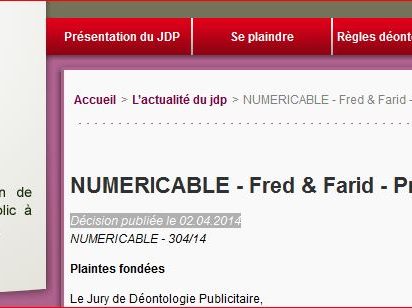 When it comes to mobilising private economic actors to safeguard nature, for example to implement the Paris Climate Agreement, the words “alignment” or “to align” are often used (1). An eloquent example is a letter dated 23 October 2019. It was signed by a group of institutional investors. Its title summarises the argument:
When it comes to mobilising private economic actors to safeguard nature, for example to implement the Paris Climate Agreement, the words “alignment” or “to align” are often used (1). An eloquent example is a letter dated 23 October 2019. It was signed by a group of institutional investors. Its title summarises the argument:
“The Australian extractive sector needs to be proactive in enabling Paris-aligned public Policy” (2).
These investors call squarely on Australian mining companies to “align” their private interests with, in the words of the European Union, “a global action plan to put the world on track to avoid dangerous climate change by limiting global warming to well below 2°C and pursuing efforts to limit it to 1.5°C” (3). To this end, they use nine times words constructed from the align root (including three occurrences of misalignment), to which two occurrences of the word line, in the expressions in line with and to draw the line (in “Deciding where the line should be drawn…”), should be added.
The double meaning of the verb “align”
This singular repetition suggests two things: first, the word “alignment” is assumed to be well understood by companies, since it is for them that the letter is intended; second, this word fulfils an imperative function that goes beyond mere recommendation. This double meaning corresponds to the literal and figurative meanings of the word, the first corresponding to placing oneself on the same line (in the sense of conforming to a norm), the second manifesting the imperative to obey an authority, to “submit to the demands of a political power” (4). Two of the occurrences of the word “alignment” in the letter of 23 October 2019 combine these two meanings. The first one explains the argument in detail:
“Companies should be consistent in their policy engagement with governments and ensure any engagement conducted on their behalf via industry bodies is aligned with the objectives of the Paris Agreement.
The funding of organisations undertaking lobbying in contradiction with companies’ own stated positions is a real concern which presents material business risks.”
The second occurrence, which is the concluding sentence, takes the form of a warning:
“Investors [the signatories of the letter in question] expect companies to ensure that they are aligned with the Paris Agreement and that company resources are not used to support trade associations that act for short term gain – undermining Paris Agreement objectives – and present long-term risks to shareholder value.”
These two passages describe two possible causes of a company’s misalignment in meeting the requirements of the Paris Agreement. The first involves a dissonance between its public statements – those that affirm its commitments to the environment – and its actions. The second concerns the financing of lobbying actions that go against the Paris Agreement, actions that favour the pursuit of a short-term financial interest.
Adam Smith on the “non-alignment” of merchants
This second cause may seem surprising. It suggests that companies could inadvertently oppose the implementation of the Paris Agreement, as evidenced by the use of the verb to ensure (“to ensure that… company resources are not used to support trade associations…”). Undoubtedly Adam Smith, considered by many as the father of capitalism, would have considered the clause inadvertently with great suspicion. There were no illusions about the voluntary commitment of merchants to the public interest. He thus claimed that merchants with similar interests necessarily tended to search for agreements, even if it meant violating both the principle of competition and the general interest:
“People of the same trade seldom meet together, even for merriment and diversion, but the conversation ends in a conspiracy against the publick, or in some contrivance to raise prices.” (5)
Later in The Wealth of Nations, Smith repeated the same argument, but added a warning against the influence that merchants can exert on political decision-makers through what is now called “lobbying” – we will note the significant use of the adjective “suspicious:”
“The proposal of any new law or regulation of commerce which comes from this order [the dealers in any particular branch of trade or manufactures], ought always to be listened to with great precaution, and ought never to be adopted till after having been long and carefully examined, not only with the most scrupulous, but with the most suspicious attention. It comes from an order of men, whose interest is never exactly the same with that of the publick, who have generally an interest to deceive and even to oppress the publick, and who accordingly have, upon many occasions, both deceived and oppressed it.” (6)
By warning the companies concerned against lobbying practices that contravene the Paris Agreement, the signatories to the letter of 23 October 2019 acted in the spirit of Adam Smith’s warnings. They also expressed the idea that material interests have such a logic that they can lead to practices contrary to the self-interest of these companies.
Acting against nature: bats and bees
That alignment with the Paris Agreement, or with any even more effective mechanism for nature conservation, requires such convincing efforts may seem absurd. But, for material interests, acting against nature can, paradoxically, be an economic option. Here is for example what Jean Gadrey and Aurore Lalucq wrote about the disappearance of bats in the United States, while they ingest insects that are harmful to agriculture, thus playing a “role of insecticide:”
“[…] For growth advocates, the disappearance of these animals could prove beneficial due to the expansion of the pesticide production chain. This would not be the only example where a disaster – natural or otherwise – would be good for GDP or neutral.” (7)
Gadrey and Lalucq’s purpose is to question analyses based on the approach of putting a price on nature to justify its protection. In the case of bats, their economic value had been estimated at $22.9 billion per year for American agriculture (8). Imagine, Gadrey and Lalucq suggest, that we proceed in the same way with bees, which play a crucial role in pollination, and that we assign them an economic value of X billion dollars. However, another economic calculation, indifferent to the intrinsic value of bees, could encourage their disappearance. Here is what the author of this disturbing calculation could say:
“Dear friends, your calculations [those which assign the value X to bees] may be correct, but we have others. If we replaced your pollinating bees with human pollination, which already exists, it would create thousands of jobs, a high added value, it would be much better for GDP than your unfortunate X billion.”
Change the language
The two arguments we have considered – the indifference of merchants to the public interest and the perverse effects of prices given to nature – work against the possibility of achieving an “alignment” of corporate interests with the terms of the Paris Agreement. But perhaps this word, most often used in a technical sense, is not a good choice. It conveys the idea of a loss of individuality, a homogenisation, a levelling. For those who, in the name of the defence of freedom, believe in the economic and political importance of a multiplicity of autonomous decision-making centres, the reference to alignment may suggest submission to a single will. It is unfair to that word, of course. But if language does play a role in deliberation and action, it may be appropriate to find a substitute. Alain Anquetil (1) See for example J. Rayner, M. Howlett & A.Wellstead, “Policy mixes and their alignment over time: Patching and stretching in the oil sands reclamation regime in Alberta, Canada,” Environmental Policy and Governance, 27, 2017, pp. 472-483; A. Cseh, “Aligning climate action with the self-interest and short-term dominated priorities of decision-makers,” Climate Policy, 2018 ; Y. Glemarec, “Aligning national interests and global climate justice: The role of human rights in enhancing the ambition of nationally determined contributions to combat climate change,” Fudan Journal of the Humanities and Social Sciences, 12, 2019, pp. 309-327. (2) “The Australian extractive sector needs to be proactive in enabling Paris-aligned public Policy,” The Investor Group on Climate Change (IGCC). (3) Source: European Union. (4) Source: Dictionnaire de la langue française Le Robert. (5) A. Smith, An Inquiry into the Nature and Causes of the Wealth of Nations, 1776, R. H. Campbell & A. S. Skinner (eds.), Oxford University Press, 1976. (6) Ibid. See also G. R. Bassiry & M. Jones, “Adam Smith and the ethics of contemporary capitalism,” Journal of Business Ethics, 12(8), 1993, pp. 621-627. (7) J. Gadrey et A. Lalucq, Faut-il donner un prix à la nature ? Les Petits Matins / Institut Veblen, 2015. (8) J. G. Boyles, P. M. Cryan, G. F. McCracken & T. H. Kunz, “Economic importance of bats in agriculture, pp. 41-42. The authors argue that, “[using] values obtained from the cotton-dominated agroecosystem in Texas, and the number of acres of harvested cropland across the continental United States in 2007, we estimate the value of bats to the agricultural industry is roughly $22.9 billion/ year.” [cite]




